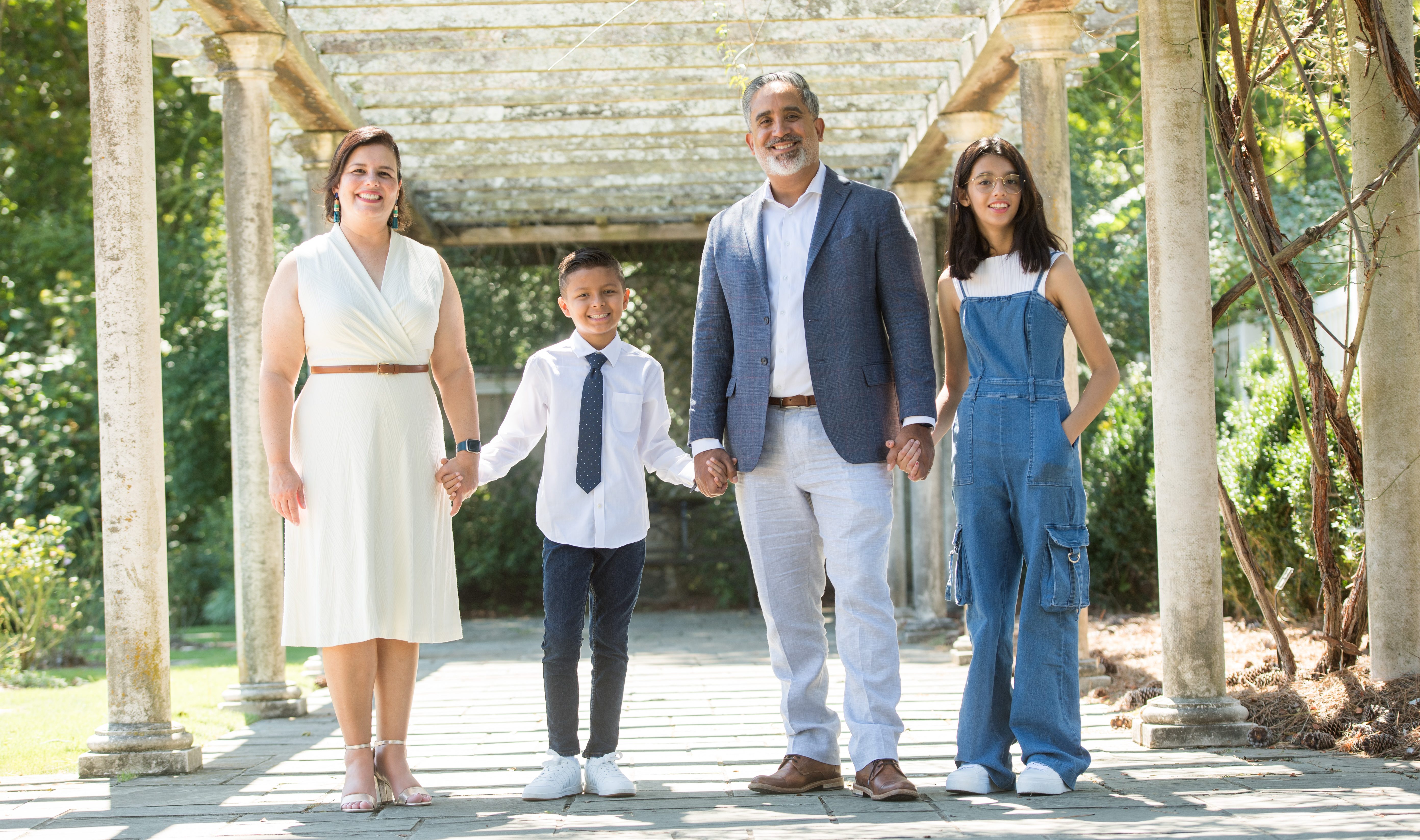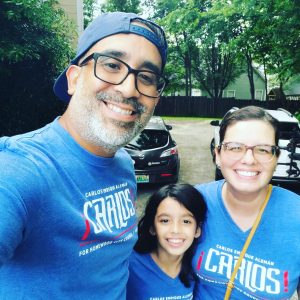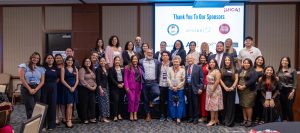By Carlos E. Alemán
#MyAlabamaStory #AHAat50 | September 29, 2024


I live in Alabama, but my Alabama looks a little different than what most folks might imagine. My Alabama speaks Spanish. My Alabama is the scent of tacos from trucks and the vibrant aisles of Mi Pueblo supermarket. My Alabama is sipping mezcal cocktails at Adios with friends, sharing stories of community and hope. It’s a place where cultural richness thrives, though it may not always be visible on the surface.
I was born in Nicaragua and grew up in San Francisco, where I took for granted the presence of people who looked like me and spoke like me. After earning my doctorate at Michigan State University, I moved to Alabama in 2013 to become a professor of Latin American history at Samford University.
The first question my mother asked when I told her we were moving to Alabama was, “Is it safe there? Will you be safe there?” It’s a question that speaks volumes, not just about Alabama, but about the fears and perceptions many of us carry when we think about the South. My wife, our one-year-old daughter, and I had been living in Atlanta while my wife completed her postdoc at the Centers for Disease Control and Prevention, and I finished my dissertation. We were hesitant, but when Samford University offered me a position, we decided to take the plunge.
At first, I wasn’t sure what to expect. I quickly realized I was the only Latino professor on campus, and I wondered if I would ever find a community that felt like home. I helped organize the first Latino student organization on campus as a faculty advisor. It is often said that students succeed when they have teachers and professors who look like them, but for me, it was the students who gave me a sense of community. This effort introduced me to many Latino students, including Dulce Rivera. Dulce’s family had started the Spanish language radio station La Jefa and the Latino supermarket Mi Pueblo. Today, Dulce is the CEO of Mi Pueblo and serves on the ¡HICA! Board of Directors, a testament to the strength and continuity of our community.
In 2018, after five years at Samford, I left the university to join ¡HICA! because I saw the powerful impact of its work. ¡HICA! advocates for opportunities and removes barriers for the growing Latino and immigrant population in Alabama. We work tirelessly to create access within Alabama’s justice and health systems, facilitate legal immigration services, and help young people find educational and employment opportunities. We also provide pathways to home ownership and entrepreneurship. In short, ¡HICA! works to unlock the potential of the Latino and immigrant community in Alabama, and I knew I wanted to be a part of that mission.

What people might not know is that my family’s journey in the U.S. began when we came here on a tourist visa. For about six years, we were undocumented immigrants, navigating a system that felt unforgiving at times. Eventually, we were able to adjust our status, and that was a transformative moment for my family. It’s why becoming a U.S. citizen in 2014, just one year after moving to Alabama, meant so much to me. It validated the sacrifices my parents made, and it was a recognition of everything they had endured for our future. This personal experience is what drives my work at ¡HICA!. When I see families walk through our doors, I am reminded of my family and how we needed organizations like ¡HICA! to survive and later thrive. When I see the kids, I see myself.
What’s most remarkable is that ¡HICA! has been doing this work for 25 years, in a state that might seem, at first glance, like an unlikely place for such a movement. We’ve done it with the support of Alabamians who care deeply about creating a welcoming environment for Latinos and immigrants.
Of course, my Alabama is also the one that the rest of the country knows too well: the Alabama that passed HB 56 in 2011, a law designed to make life so difficult for immigrants that they would self-deport. Just a month after I moved here, I joined a demonstration coordinated by the Alabama Coalition for Immigrant Justice (ACIJ) to protest HB 56. My wife, our daughter, and I marched in defense of immigrant rights.
Since then, Alabama has become more than just the place I live — it has become the place where I give back. In 2020, I was elected to the Homewood City Council, becoming the first-ever Latino elected official in Alabama. This community has embraced me in ways I never expected, and I am proud to serve in this role, helping to build a more inclusive and welcoming environment for all.
And now, after over a decade in this state, I find myself reflecting on what Alabama has come to mean for me. In some ways, I still don’t know if I consider myself an Alabamian. But when I look at my daughter, I see it clearly: Alabama is in her voice, in the way she says “family” with a Southern twang. She was born in Atlanta, but she has spent most of her young life here in Alabama. This is her home, and through her, it has become mine as well.
I see it too in how our neighbors have embraced our nephew, Byron, who lives with us now. They didn’t just welcome him into our family; they welcomed him into our community. In moments like these, I realize that my Alabama, the one that I’ve built with my family, friends, and colleagues, is not so different from the Alabama that others call home.
At ¡HICA!, we’re building a future where our community can fully realize their potential, where young people can pursue their dreams, where families can find stability and opportunity, and where being Latino in Alabama is not an exception but a part of the vibrant, diverse fabric of this state. When I think about the future, I think about an Alabama that will be better because immigrants are here.
This is my Alabama story. And like Alabama itself, it is a story of complexity, resilience, and, above all, hope.
Carlos E. Alemán, Ph.D., is a historian, former professor, and chief executive officer of ¡HICA!, the Hispanic and Immigrant Center of Alabama.

#MyAlabamaStory #AHAat50
February 21, 2024
I spent much of my childhood hung up on where I lived, or rather, trying to explain to others exactly where I resided. My house was situated in an undefined...